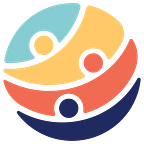Interview with Michela Martinazzi and Josh Komarovsky
Michela and Josh are volunteers at the New York Community Action Project (NYCAP), an organization that advocates for community control of the local city police service to prevent police brutality.
Interviewer: Michelle Feng
Summary written by Wendy Xu
New York Community Action Practice
New York Community Action Project (NYCAP) is a group pushing draft legislation around civilian oversight like police commissions in New York City. It is affiliated with the National Alliance Against Racist and Political Repression (NAARPR), a national group with regional chapters.
NYCAP meets for a couple of hours each week. They focus primarily on coordinating mass movements and lobbying. For the former, they organize public events and live streams. For the latter, they approach city council members with legislation drafts. They stress the two components with equal cruciality, which together dress the contrast between the widespread liberal value in NY and the political reality. Although New York is one of the most liberal cities in the U.S., local politicians’ actions are often misaligned with their election promises and the public’s voices. For example, New Yorkers have critiqued the unnecessary drug criminalization and policing of drunken party-goers, but have not yet seen actual changes in policing practices.
How Stories Started
Our interview with Michela and Josh started with their personal stories of getting involved in activism. Michela’s activism started at the age of 18 when she attended college in Florida. Growing up in a very liberal family in Florida, she started to get involved in an activist group and learned about anti-war efforts and immigrants’ rights during college. After moving to New York, she started to get involved in NYCAP to advocate for accountable practices of the police.
A student in mathematics at the University of York, Josh was not involved in activism during his studies. His connection to politics was through his contact with co-workers in his part-time job in restaurants and grocery stores, who bore exploitative jobs and lived “paycheck by paycheck.” It was not until a strike of graduate students and teaching faculty right after his graduation that he got involved in activism. He spent a year in the student Solidarity Movement before attending law school, where he continued helping organize the student solidarity movement. Once he arrived in New York, he joined NYCAP and continued his engagement in activism.
Historical and Socio-economic Reasons
To explain the contrast between liberal values and political reality, Michela traces the fabric of the U.S. Constitution and the socio-economic structure of New York. At the time of the Declaration of Independence and the Constitution, slavery was still legal and used as a criminal punishment from which the ruling class could profit. The financial benefits and their impact on the legal system and mindsets were, to some extent, lasting.
Michela pointed out that:
“The civil war did not reach the end point it was supposed to be. And overpowered police is baked into the capitalist system.”
As New York is home to Wall Street and many big organizations, their demand plays a large role in the policies finally implemented, including policing.
How to Build Relationships and Gain Trust
In response to the interviewer’s question on how to approach the minority community and how to build relationships and trust, Michela recalled her experience during the pandemic.
“Just being there to help. Like in the pandemic, I work from home and offer help to babysit the kids of nurses in the same building (even though) I don’t know their language. People get to know you through simple conversations and actions. That goes a long way.”
Intertwined Social Issues. Activists in Coalition
Josh explained that engaging in coalitions is another way to build relationships.
“Appearing in solidarity with other groups could increase respect.”
NYCAP connects to other activist groups for support during NYCAP’s campaigns. Michela explained:
“Everything we do is like a marathon, and there are so many things to be part of and to be done. Coalition allows us to connect and support each other’s movements.”
